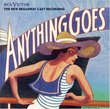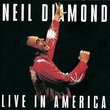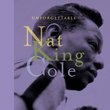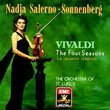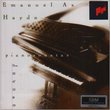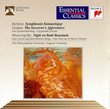| All Artists: Frederic Chopin, Artur Rubinstein Title: The Rubinstein Collection Vol 47 - Chopin: Waltzes, Impromptus, Bolero Members Wishing: 0 Total Copies: 0 Label: RCA Original Release Date: 1/1/1963 Re-Release Date: 1/9/2001 Album Type: Original recording remastered Genres: Dance & Electronic, Classical Styles: Chamber Music, Forms & Genres, Fantasies, Short Forms, Historical Periods, Classical (c.1770-1830), Modern, 20th, & 21st Century, Instruments, Keyboard Number of Discs: 1 SwapaCD Credits: 1 UPC: 090266304721 |
Search - Frederic Chopin, Artur Rubinstein :: The Rubinstein Collection Vol 47 - Chopin: Waltzes, Impromptus, Bolero
 | Frederic Chopin, Artur Rubinstein The Rubinstein Collection Vol 47 - Chopin: Waltzes, Impromptus, Bolero Genres: Dance & Electronic, Classical
|
CD DetailsSimilarly Requested CDs
|
CD ReviewsArtur Rubinstein great recording of Chopin?s Bolero, Waltzes Peter Dietrich | Boston, MA United States | 01/05/2004 (5 out of 5 stars) "Artur Rubinstein great recording of Chopin's Bolero and 14 Waltzes By Peter Dietrich, president, Chopin Society of New EnglandArtur Rubinstein's performance of the fourteen waltzes seems to be among the definitive versions. This stereo recording from a one day session in June of 1963, issued on BMG in the Rubinstein collection volume 47, and the earlier version first issued on LP RCA Victor LM-1892 recorded in December, 1953 and issued on BMG Rubinstein collection volume 29, equals in sound and profound understanding the two great versions by Alexander Brailowsky (1896-1976) recorded in the early fifties on LP for RCA Victor LM-1082 as well as the stereo recording from the early sixties issued on Sony Music SBK 46346 in 1990.The four recordings are milestones of the classical waltzes. Their interpretations have achieved expert fluidity with grace and elegance of nobility. As Robert Schumann remarked "should be danced at least by countesses." To the above recordings I will add Dinu Lipatti's recording issued by EMI in the Great Recordings of the Century series. My opinion is based on hearing a great number of outstanding as well as good performances through more than fifty years. I will just list several additional names from my collection who have recorded fourteen waltzes: 1) Robert Lortat (1930), 2) Alfred Cortot (1934 and 1943), 3) Edward Kilenyi (1952), 4) Moura Lympany (1959), 5) Witold Malcuzynski (1959), 6) Regina Smendzianka (1959 and 1961), 7) Samson Francois (1964), 8) Stefan Askenase (1964), 9) Adam Harasiewicz (1965), 10) Tamas Vassary (1966); pianists who have recorded nineteen waltzes: 1) Augustin Anievas (1970), 2) Geoges Cziffra (1979), 3) Claudio Arrau (1980 - several of the waltzes are played too slow), 4) Vladimir Ashkenazy (1984), 5) Lidia Grychtolowna (1989), 6) Istvan Szekely (1992), 7) Garrick Ohlsson (1996 - 20 waltzes in this recording) 8) Jerzy Sterczynski (1996 - 23 waltzes, which will be discussed in the future).The famous Polish poet Kazimierz Wierzynski author of the "Life and Death of Chopin" (1949) makes the following observation. "Chopin's Waltzes have little or nothing in common with the atmosphere of the ballroom. Niecks calls them Tanzdichtungen (dance poems). How does Rubinstein play the Chopin Waltzes? Surely, their worldliness and elegance are particularly suited to this worldly and elegant pianist whose incomparable virtuosity goes hand in hand with his unique feeling for Chopin. Without in the least sentimentalizing Chopin, Rubinstein fully renders his warmth: he is the ideal interpreter of the waltzes in which tenderness is so subtly blended with sparkle, playfulness and deep emotion."Other Chopin works included in this compilation are the four impromptus recorded in 1964 and the Bolero recorded in 1962. Harvey Sachs, author of Rubinstein's biography published by Grove Press, New York, 1995, wrote the following notes for this compilation: "The 1964 version of the Impromptus, heard here is typical of the beautifully poised, yet deeply poetic Chopin recordings that Rubinstein made in his seventies as a sort of summa of his interpretations of the music of his great compatriot." However, the glory of this compilation is the Bolero in A Major, Op. 19. Until the Rubinstein recording in 1962 when he was almost 75 years old, this work was "obscure" Chopin, almost completely forgotten and recorded very seldom as well as terribly underrated. Despite the obscurity of the work for such a long time, there are several recordings of it in existence. I will list the notable recordings from my collection according to their release: 1) Adam Harasiewicz, Philips (1972); 2) Arnaldo Cohen, Dischi Ricordi, LP (1978); 3) Nikita Magaloff, Philips (1979); 4) Vladimir Ashkenazy, London/Decca (1987); 5) Georges Cziffra, EMI (1987); 6) Nelly Ben-Or, Meridian Records (1989); 7) Idil Biret, Naxos (1993); 8) Garrick Ohlsson, Arabesque, vol. 8 (1997); 9) Emil von Saur (recorded 1940) Arbiter (1998); 10) Anatol Ugorski, Chopin Complete Edition DG, vol. 7 (1999).All the above recordings, although inspired performances and technically excellent, do not reveal the hidden beauty of the dance, as does Artur Rubinstein in his performance. Mr. Rubinstein unhurried tempos and magical play with the pedal plus his affinity for Spanish music brings this work to interpretative splendid heights unknown until his recording and since. These five star performances are highly recommended for every music lover." Still beautiful to me GEORGE RANNIE | DENVER, COLORADO United States | 11/03/2005 (5 out of 5 stars) "As a piano student during the 1950s and early 1960s, I remember that there were "knock down drag out" arguments between the "pro-Rubinstein" factions and the "anti-Rubinstein" factions of the classical piano performing world. I was made keenly aware of the aforesaid because my piano instructor was a "dye-hard" member of the "anti-Rubinstein" faction. Rebelliously, I purchased all of the Rubinstein recordings that I could get my little untalented hands on including this recording of Chopin's Waltzes. I remember loving them at the time as I still do now that I've restored this recording on CD to my collection. Rubinstein's performance in this recording really touches my very soul. Upon hearing this recording again, I'm reminded of how much I loved them almost 50 years ago. Whatever one may call his playing (eccentric, sentimental, syrupy, etc.) it certainly has retained its appeal to me--as a young person or now as an older person. (Note: Rubinstein particularly plays the "sad little" waltzes in minor keys exquisitely!) If you want to hear a master (at least to me) of Chopin playing some wonderful works, buy this disc. " The engaging poetry! Hiram Gomez Pardo | Valencia, Venezuela | 12/19/2006 (5 out of 5 stars) "One of the maxim exponents of Chopin in the first decades of the Century was undeniably Arthur Rubinstein. He knew to create - if I may - the perfect link between image and the Polish sentiment ; although the pioneer in this sense was Ignaz Jan Paderewski. Lodz was his birthplace and if Chopin was a self exiled in his historical moment., Rubinstein must have taken into account in September 1 1939.
He nourished the last traces of a dying romanticism - as well as Rachmaninov did it - after his forced exile from URSS. His golden sound was far from the tragic approach given by of Alfred Cortot, for instance. He played the piano according the canons of the artist of the Century XIX, expression and sentimentality, hovered by an ardent nationalism that still inflamed the poetic imagination in some corners of the world, specially in the enormous immigrant wave who chose different places in America in order to search a promised land. His direct phrasing without intellectual or philosophical approaches deserved to him a special name in the Western hemisphere. He is now part of the keyboard's legend as well as one of the Chopin`s champions. " |

 Track Listings (19) - Disc #1
Track Listings (19) - Disc #1![Vivaldi's Ring of Mystery [With CD]](https://nationalbookswap.com/cd//m/30/0730/80730.jpg)
